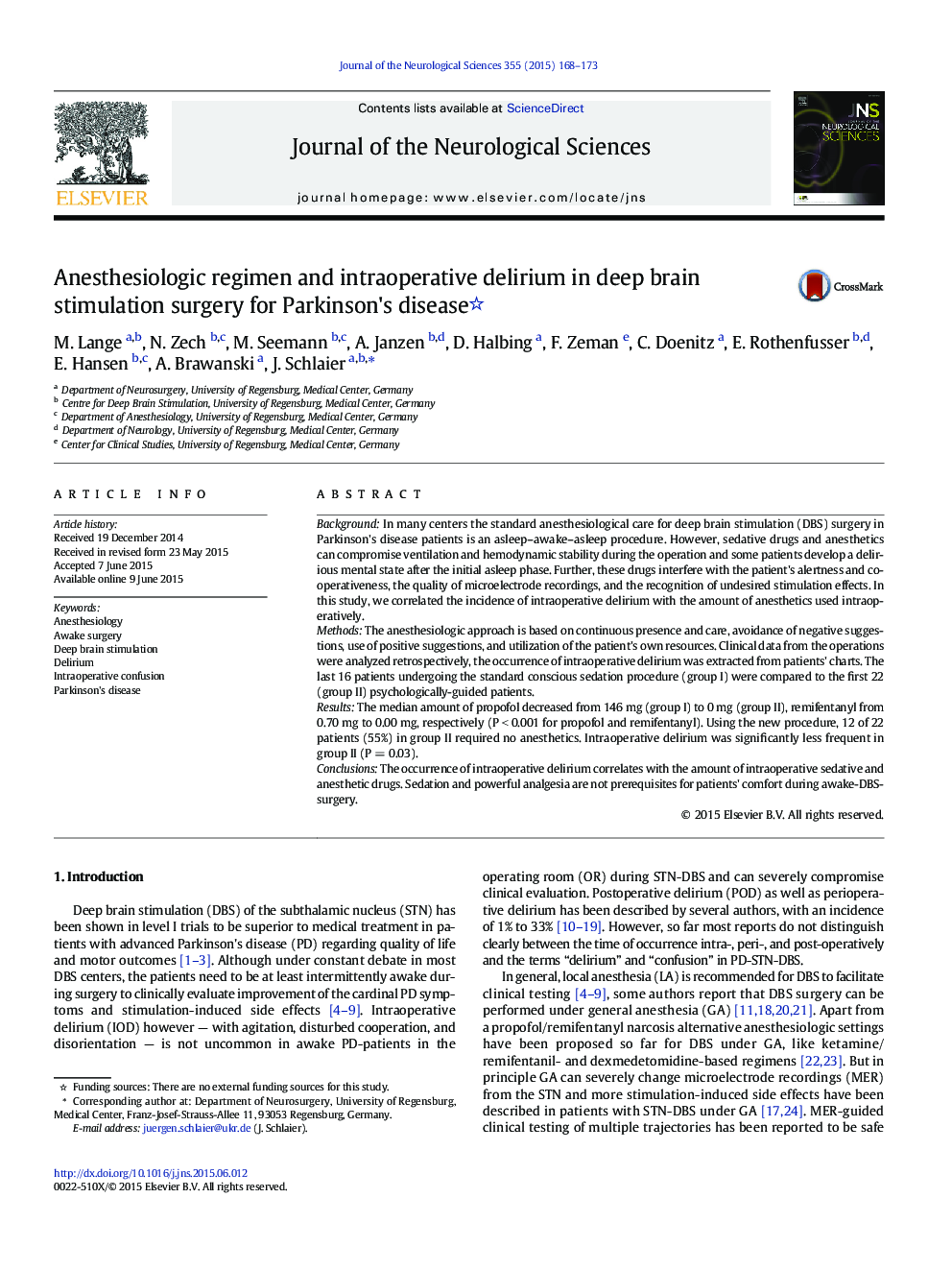| Article ID | Journal | Published Year | Pages | File Type |
|---|---|---|---|---|
| 1913318 | Journal of the Neurological Sciences | 2015 | 6 Pages |
•Narcotics can be decreased to virtually zero during awake DBS-surgery by using special psychological support.•In PD-patients this seems to reduce the occurrence of intraoperative confusion.•It does not impair patients' comfort during the procedure.•It does not increase perioperative complications.
BackgroundIn many centers the standard anesthesiological care for deep brain stimulation (DBS) surgery in Parkinson's disease patients is an asleep–awake–asleep procedure. However, sedative drugs and anesthetics can compromise ventilation and hemodynamic stability during the operation and some patients develop a delirious mental state after the initial asleep phase. Further, these drugs interfere with the patient's alertness and cooperativeness, the quality of microelectrode recordings, and the recognition of undesired stimulation effects. In this study, we correlated the incidence of intraoperative delirium with the amount of anesthetics used intraoperatively.MethodsThe anesthesiologic approach is based on continuous presence and care, avoidance of negative suggestions, use of positive suggestions, and utilization of the patient's own resources. Clinical data from the operations were analyzed retrospectively, the occurrence of intraoperative delirium was extracted from patients' charts. The last 16 patients undergoing the standard conscious sedation procedure (group I) were compared to the first 22 (group II) psychologically-guided patients.ResultsThe median amount of propofol decreased from 146 mg (group I) to 0 mg (group II), remifentanyl from 0.70 mg to 0.00 mg, respectively (P < 0.001 for propofol and remifentanyl). Using the new procedure, 12 of 22 patients (55%) in group II required no anesthetics. Intraoperative delirium was significantly less frequent in group II (P = 0.03).ConclusionsThe occurrence of intraoperative delirium correlates with the amount of intraoperative sedative and anesthetic drugs. Sedation and powerful analgesia are not prerequisites for patients' comfort during awake-DBS-surgery.
